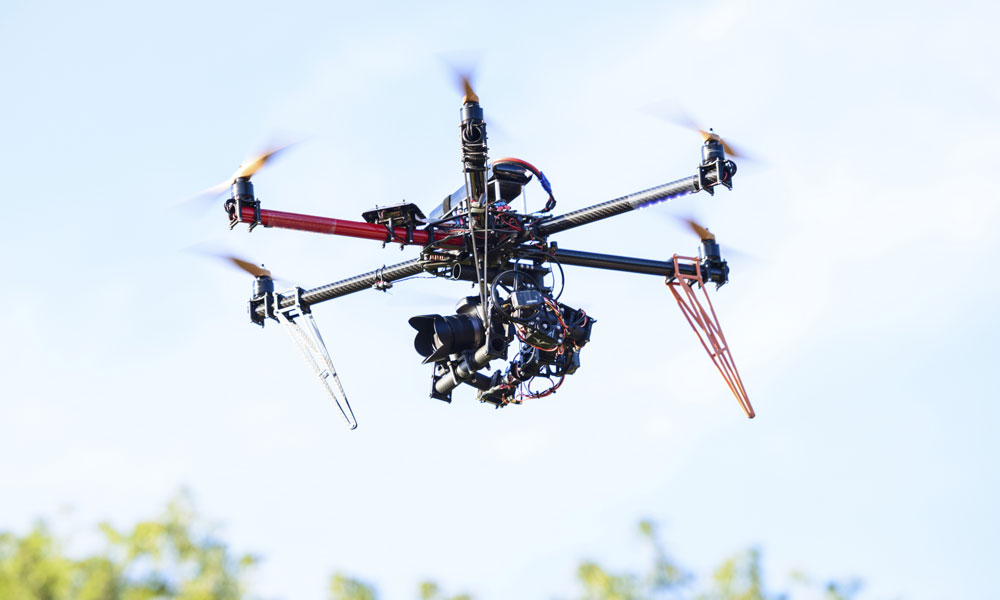
Here Come the Drones: Industry Groups Talk Up FAA’s Unmanned Device Tests
The FAA's recent decision on test sites for unmanned aerial vehicles, or drones, gave six different states a big win for future industry growth—but even some of the losing bids sounded pretty upbeat about future prospects.
The Federal Aviation Administration’s recent announcement of drone test sites gave six areas a big boost as the unmanned aerial vehicle industry’s future unfolds. But even some who had losing bids sounded upbeat about the industry’s prospects.
Maybe Jeff Bezos’ pipe dream of sending drones to deliver Amazon.com packages isn’t quite as far off as some think.
The Federal Aviation Administration’s recent approval of a half dozen sites to test the viability of using unmanned aerial vehicles for nonmilitary purposes has a lot of folks talking—including local business groups that see an opportunity to latch onto a potential business breakthrough. More details:
In designating the first UAS test sites in these states, the FAA has taken an important step toward recognizing the incredible economic and job creation potential this technology brings.
About the program: After receiving 25 applications spanning two dozen states, the FAA approved six bids to operate sites for unmanned aircraft systems (UAS) research. Among the picks was a trio of schools—University of Alaska, Texas A&M University-Corpus Christi, and Virginia Tech— as well as the state of Nevada, Griffiss International Airport in New York state, and the North Dakota Department of Commerce. The FAA chose locations for their infrastructure, climate, and geographic diversity, as well as experience in aviation work.
A leading advocate cheers: The Association for Unmanned Vehicle Systems International (AUVSI), which promotes the technology’s commercial potential beyond weaponry, was understandably bullish on the FAA’s move. “In designating the first UAS test sites in these states,” AUVSI president and CEO Michael Toscano said in a statement, “the FAA has taken an important step toward recognizing the incredible economic and job creation potential this technology brings. AUVSI’s economic report projects that the expansion of UAS technology will create more than 100,000 jobs nationwide and generate more than $82 billion in economic impact in the first decade following integration.”
Local groups cite business gains: But AUVSI wasn’t the only one praising the FAA’s announcement. Business groups in Oregon (where the University of Alaska plans to do some of its testing) and New York were among those thinking big-picture about the potential for the unmanned aerial vehicle industry. “Companies who are looking to test out their technologies for integrating unmanned aerial vehicles into the commercial airspace safely are going to have to do work in one of those six test locations, and we’re going to be well positioned to get some of that work,” Rob Simpson, president of CenterState Corporation for Economic Opportunity, a local business group based in central New York, told Innovation Trail. The group helped lead the creation of the Northeast UAS Airspace Integration Research Alliance (NUAIR) coalition that brought together private industry, defense contractors, and universities to create the winning New York bid.
Losers, but not sore: Even though Ohio didn’t make the cut, the head of the Dayton Development Coalition said the group learned a lot from participating in the bid process, and he is optimistic about the city’s role in the future of the unmanned aerial vehicle industry. “I’m naturally disappointed in today’s announcement, but with that being said, Dayton has been a leader in this UAS technology and we will continue to be the leaders in the nation with AFRL [the Air Force Research Laboratory] and NASA Glenn in our state,” coalition president and CEO Jeff Hoagland told the Dayton Business Journal. “We’ve put some things in place so as not to have all our eggs in one basket; I think we will continue to be the leaders in aerospace technology moving forward.” Likewise, Arizona officials expressed similar disappointment but said they expected to play a role in the growth of the unmanned vehicle sector.
(erniedecker/iStock Editorial/Thinkstock)






Comments